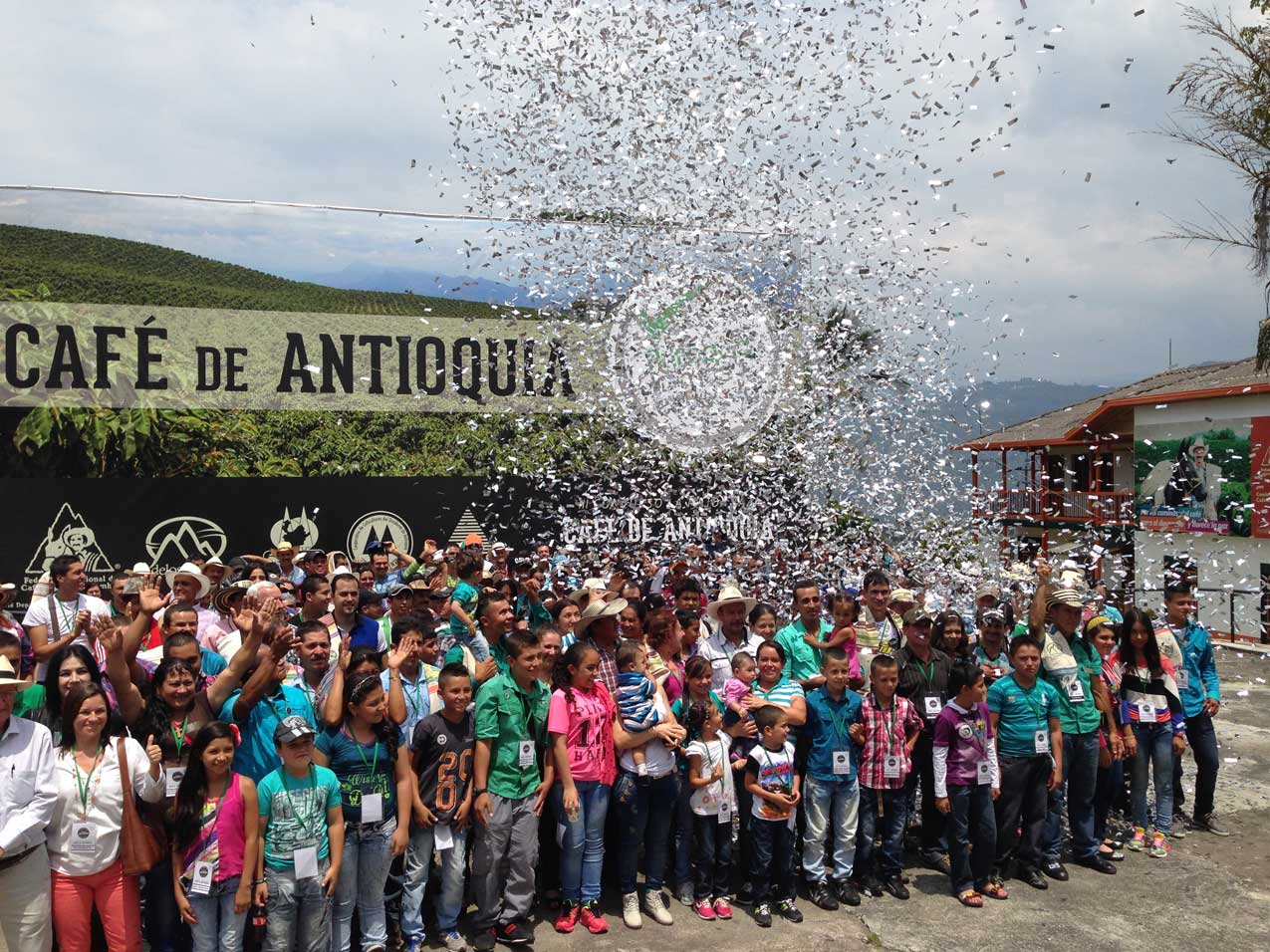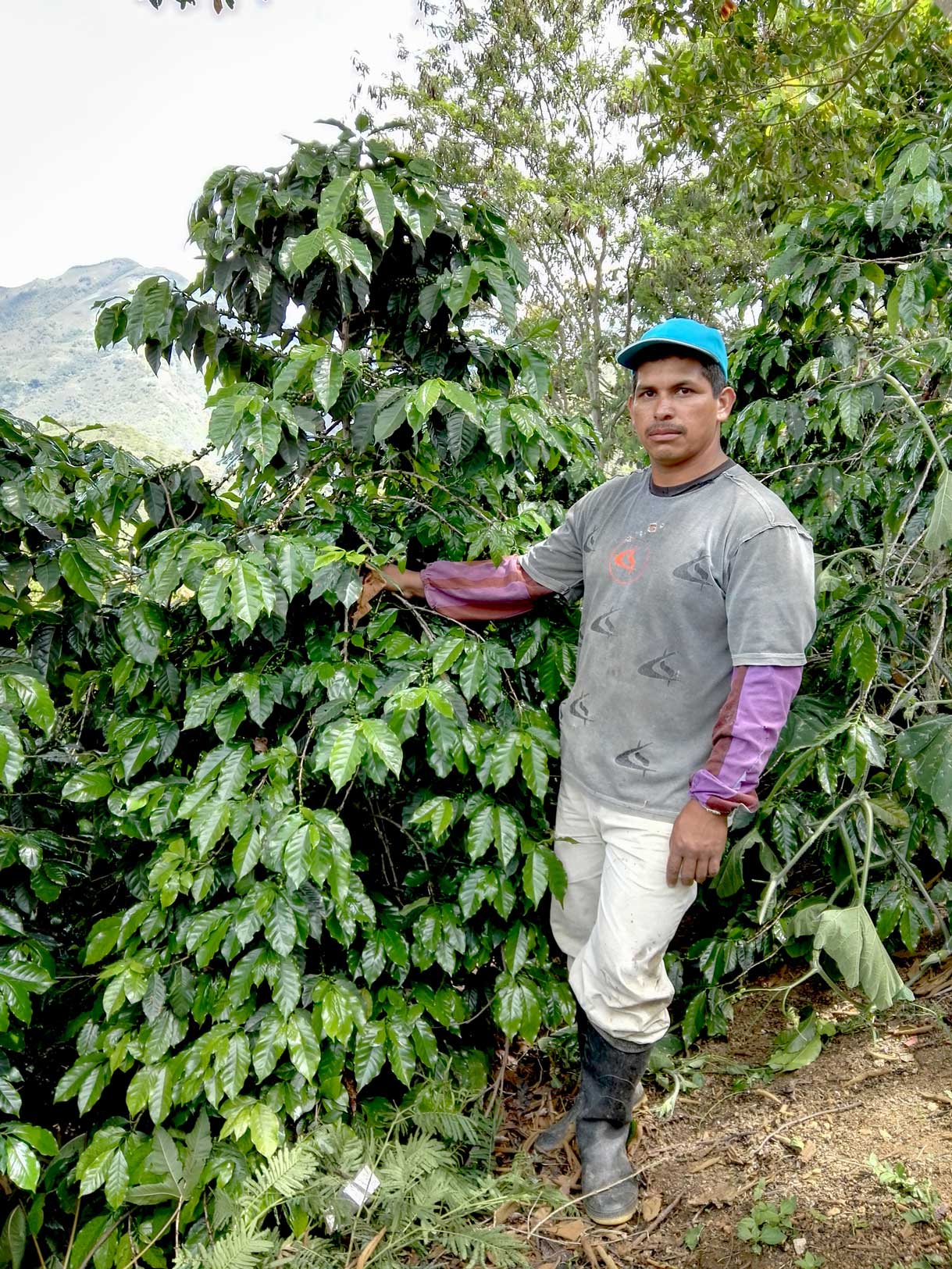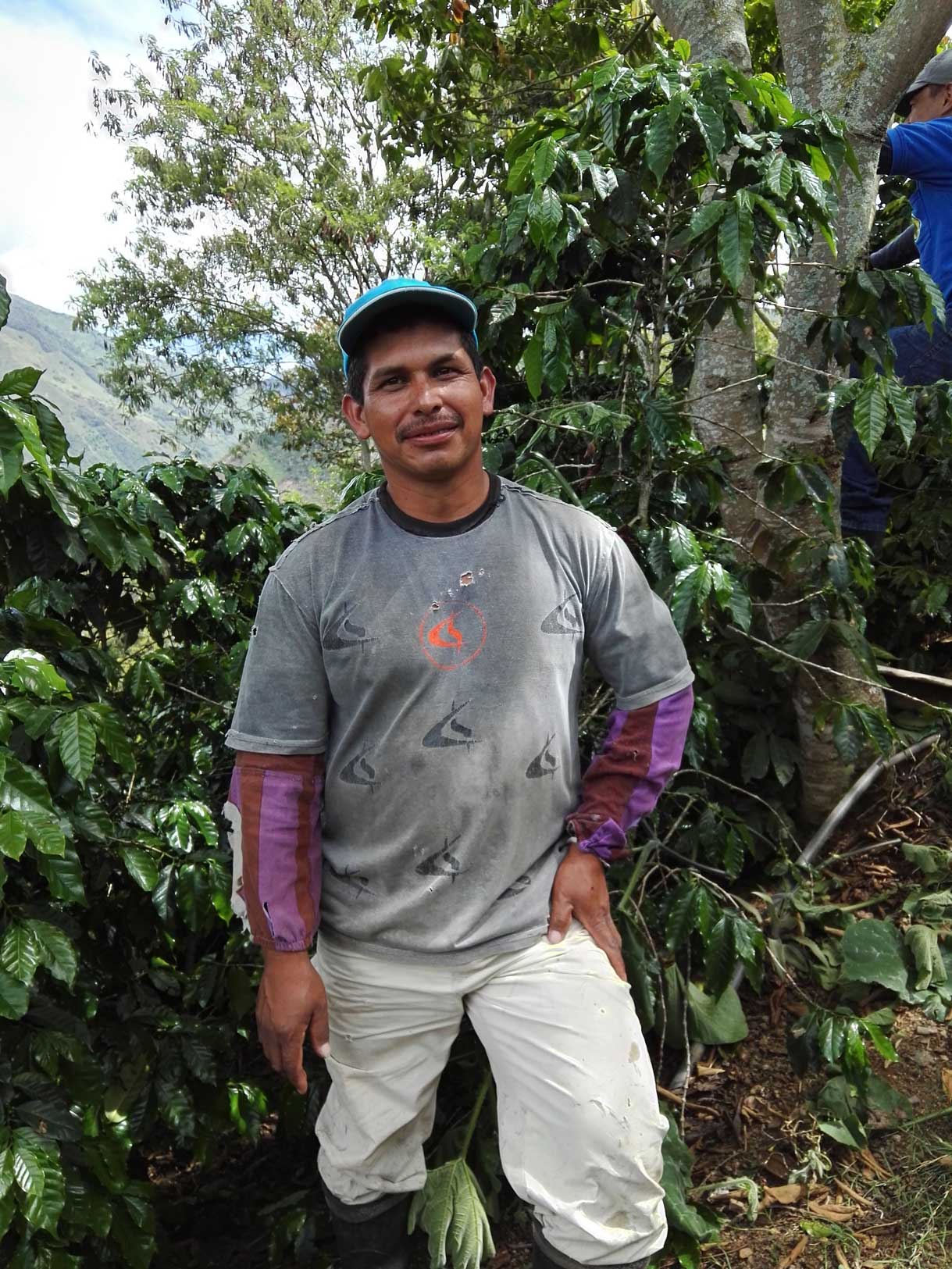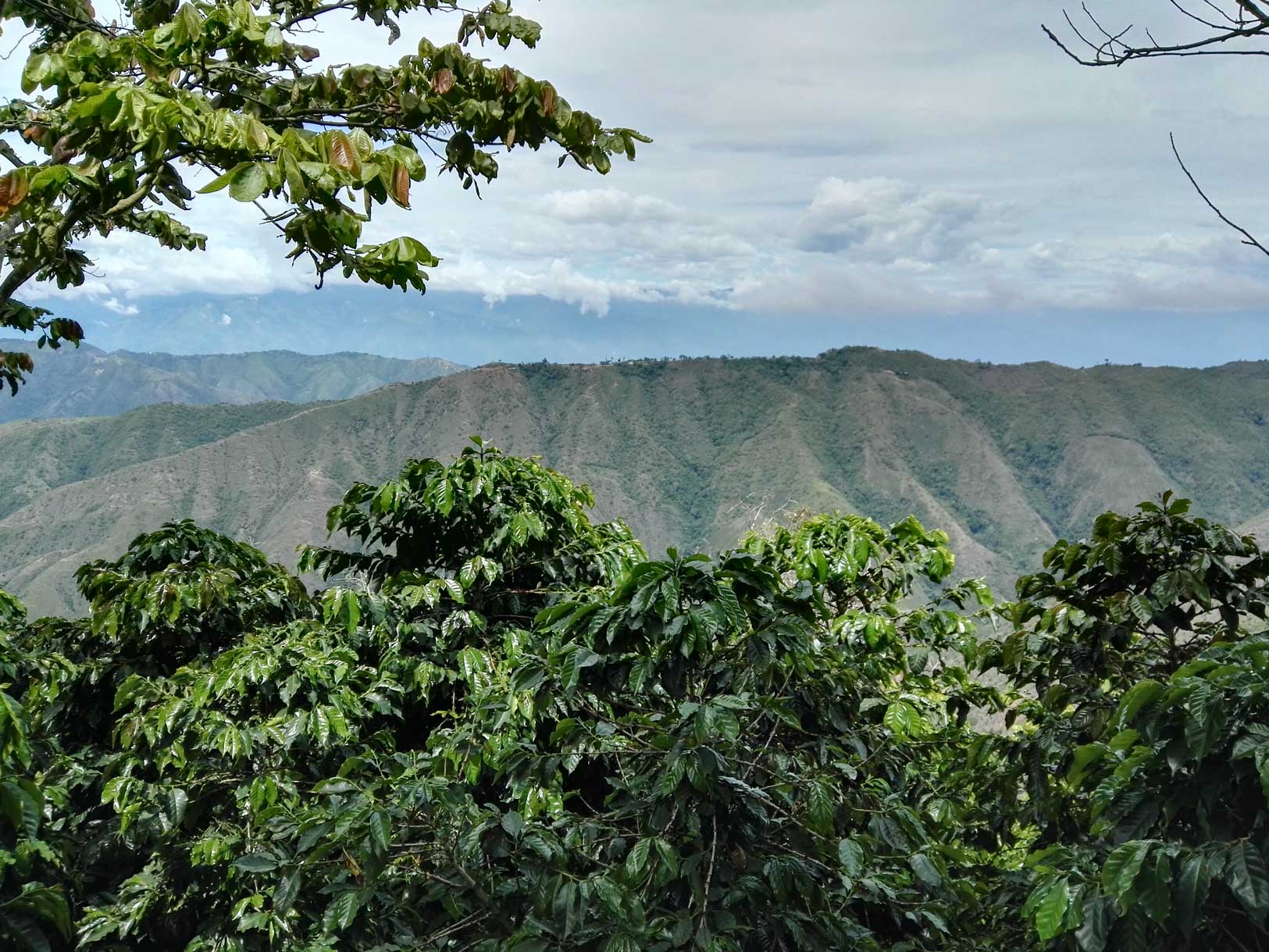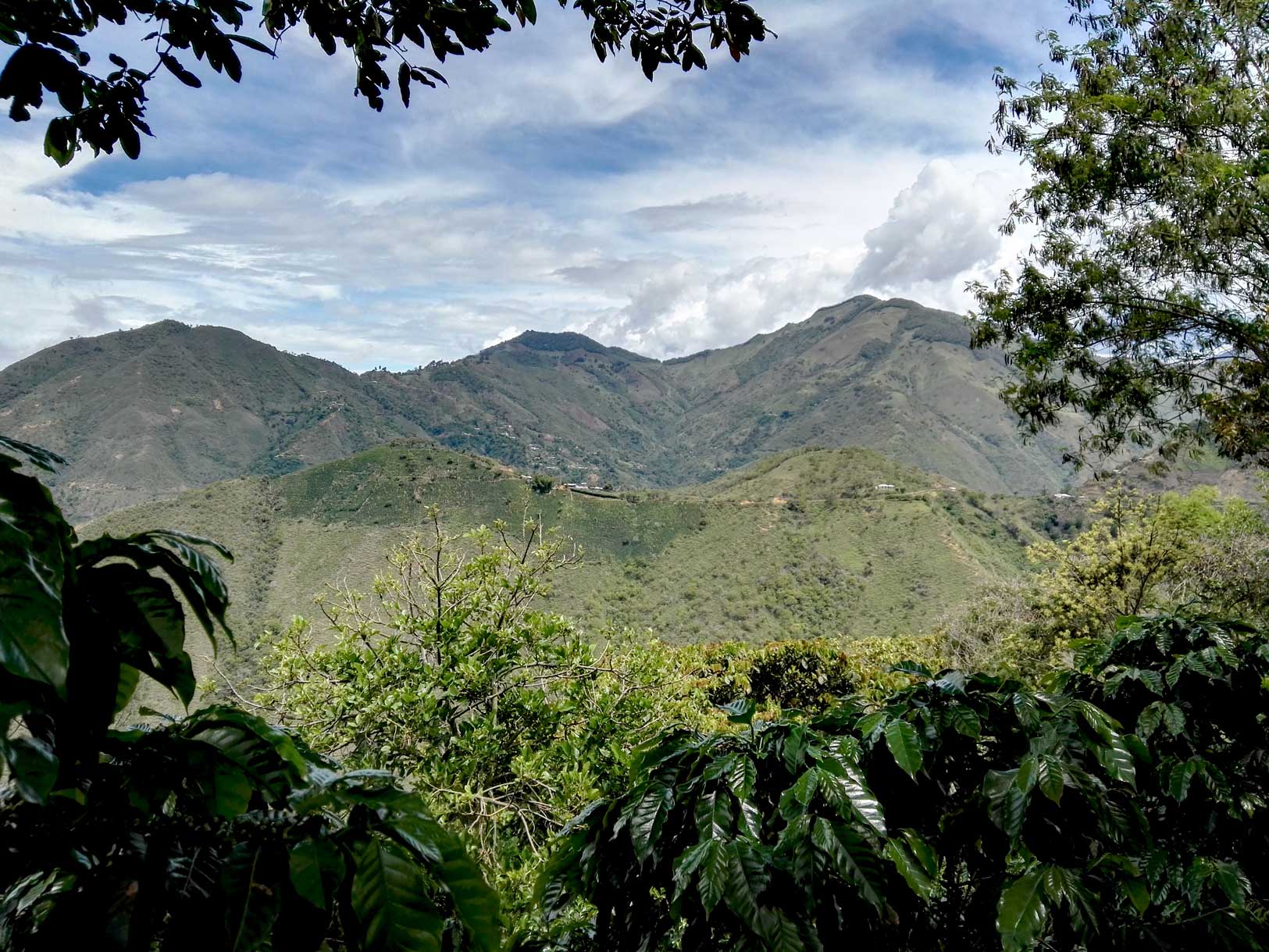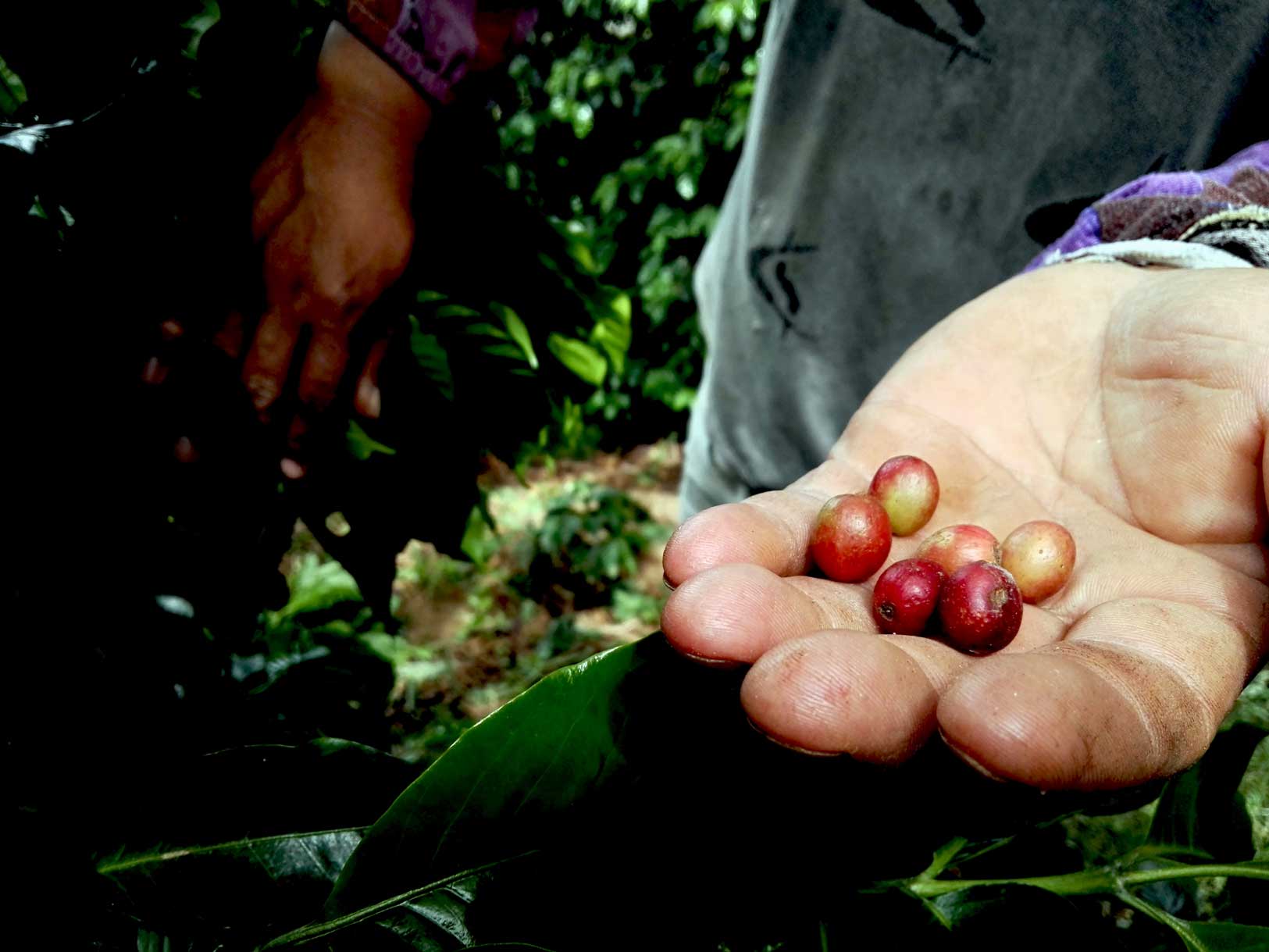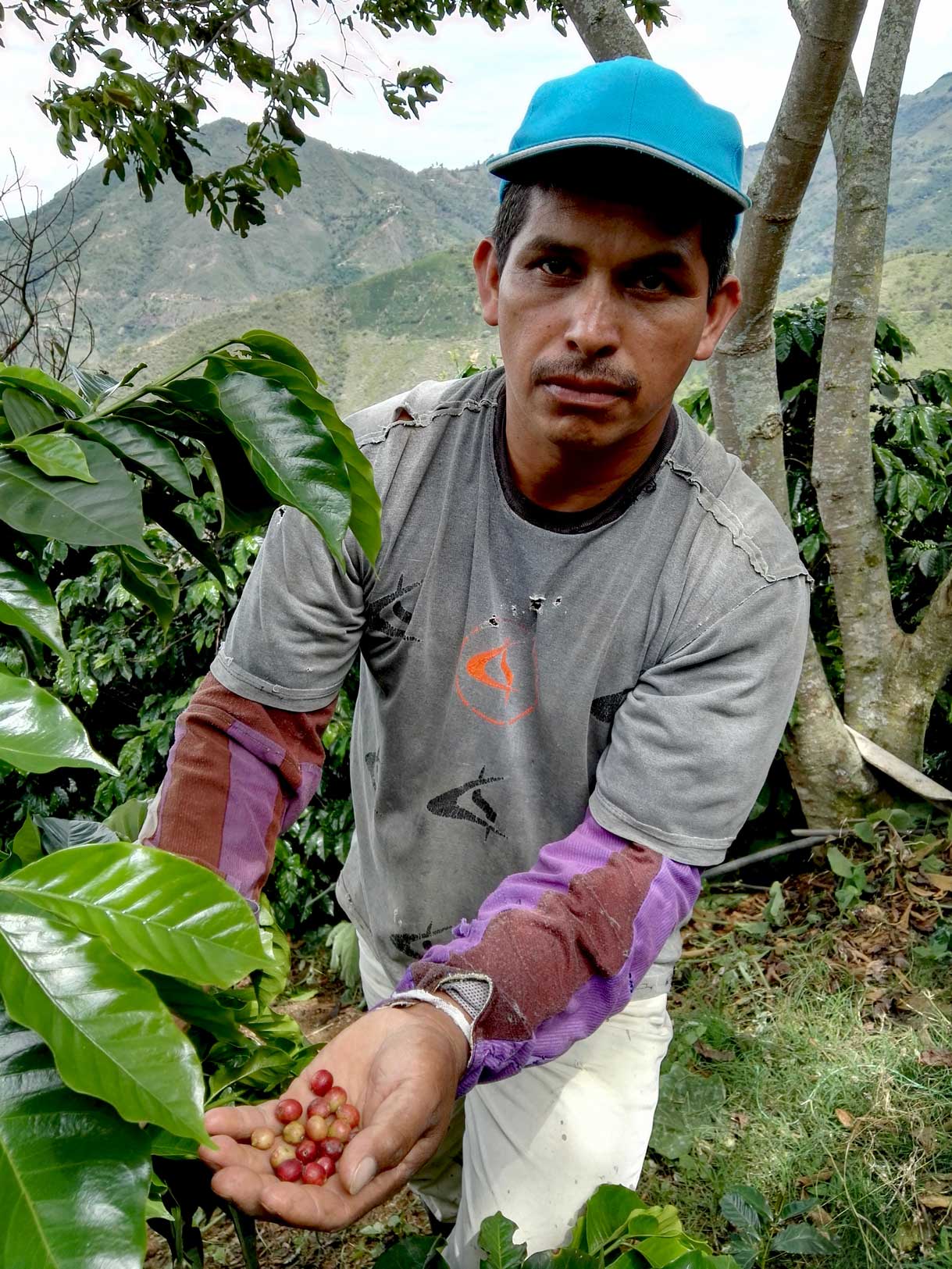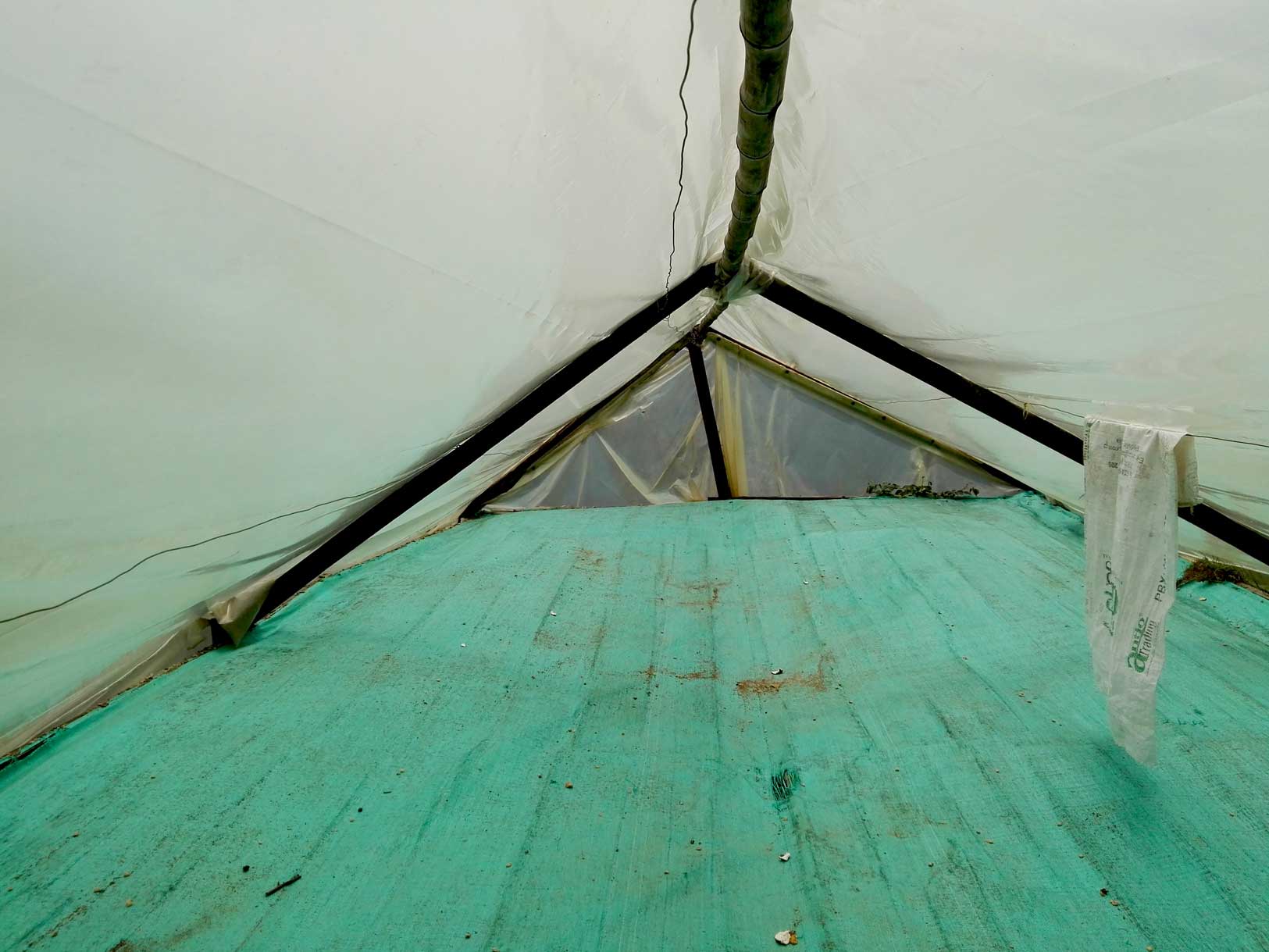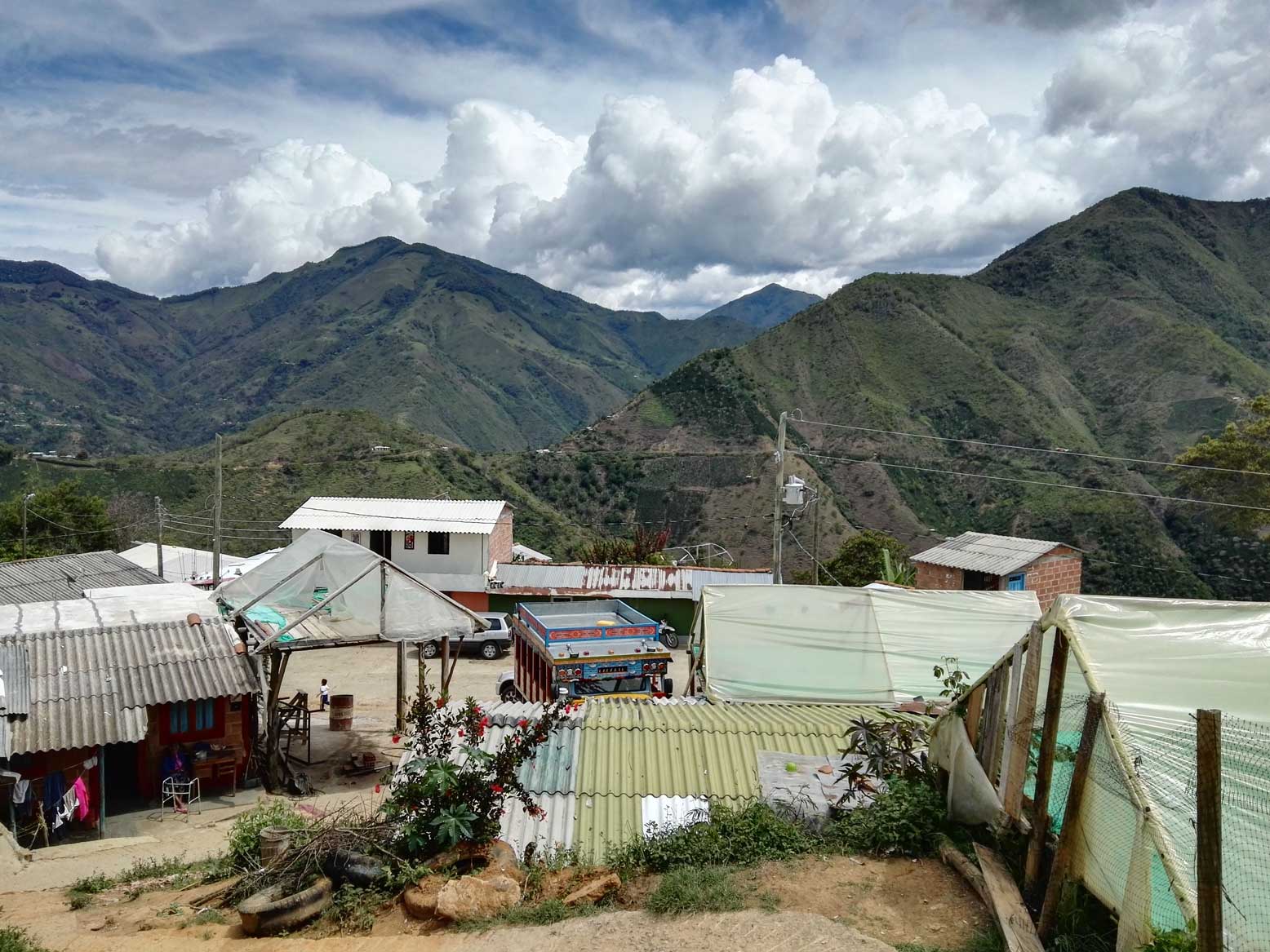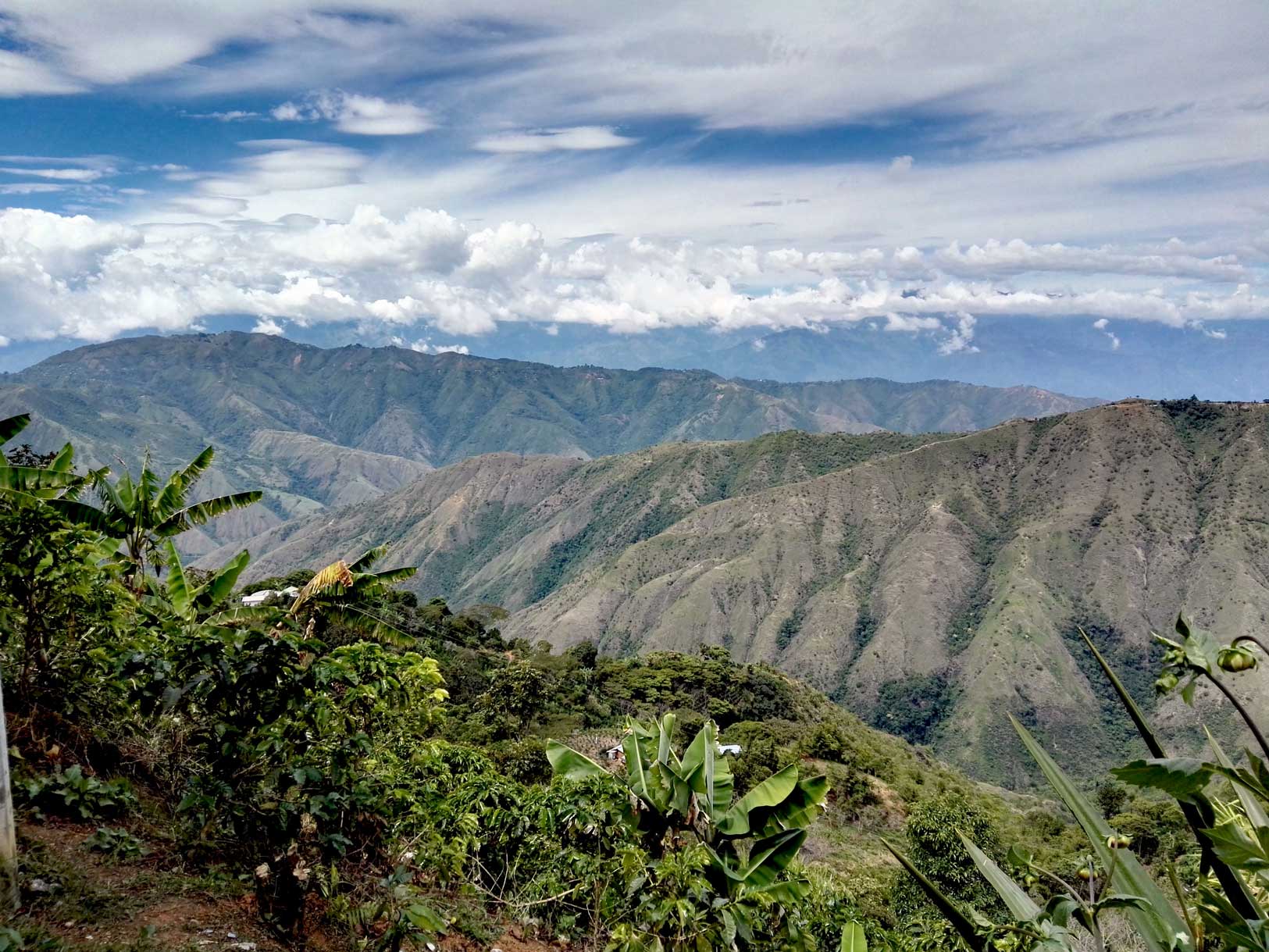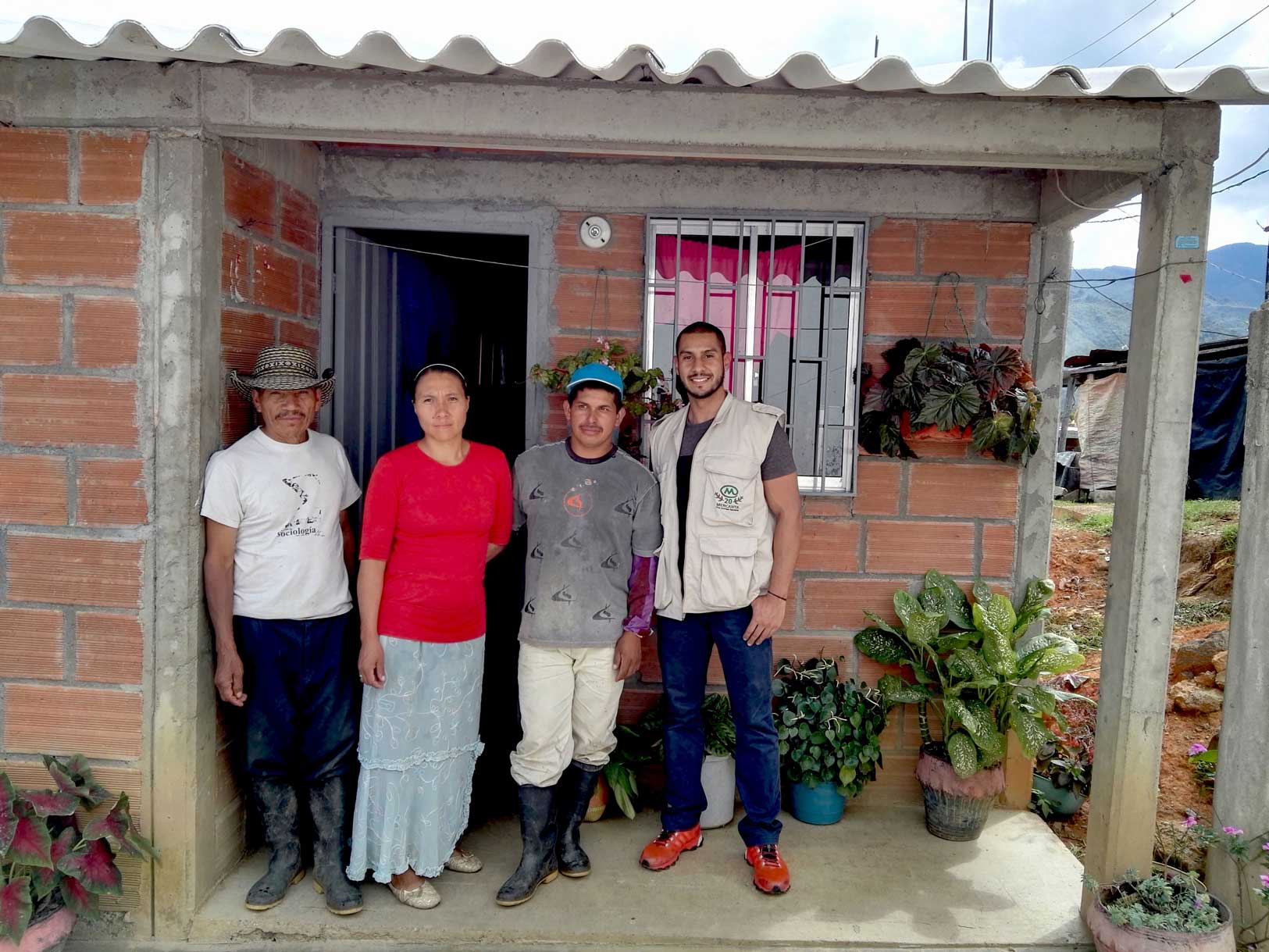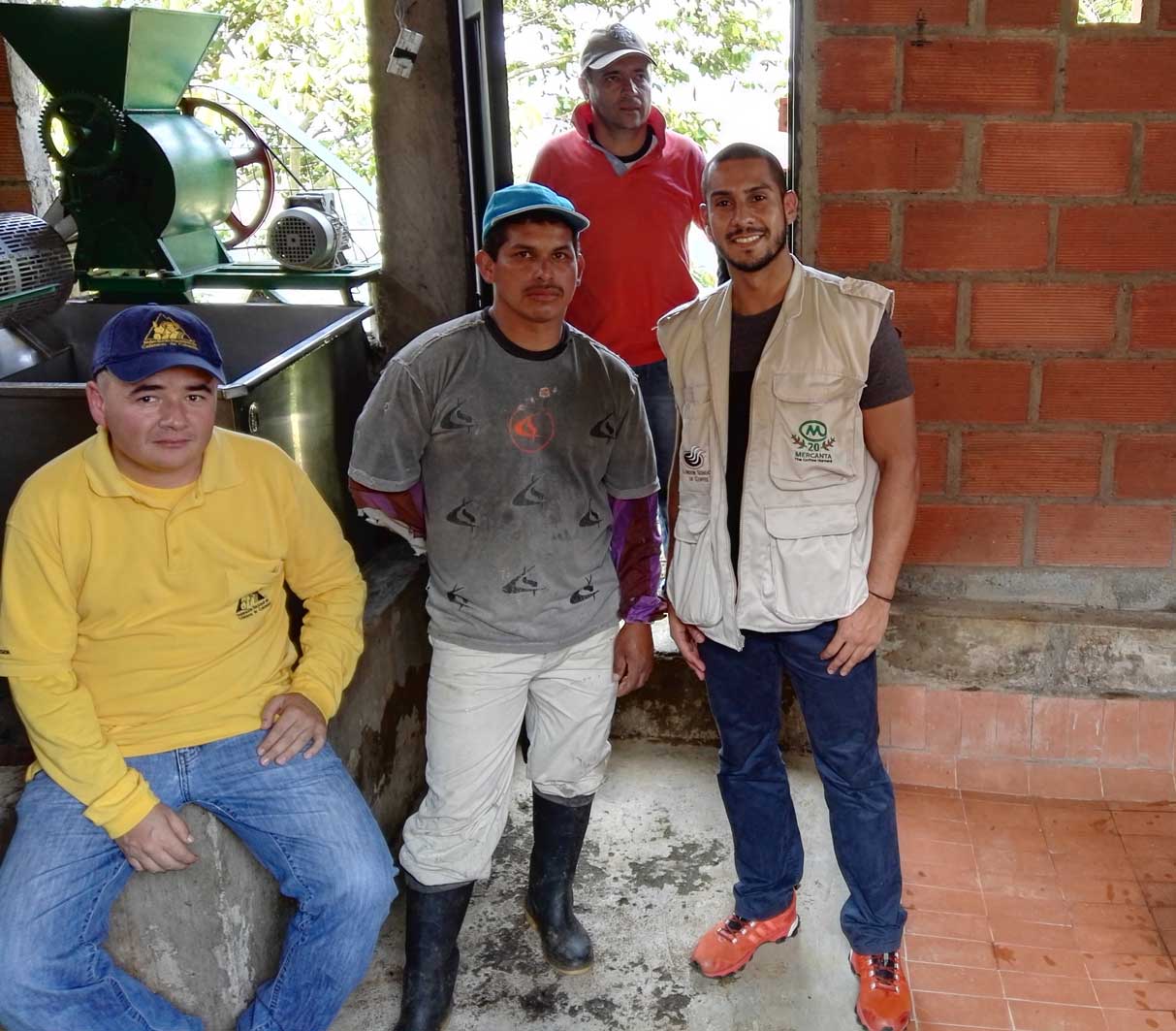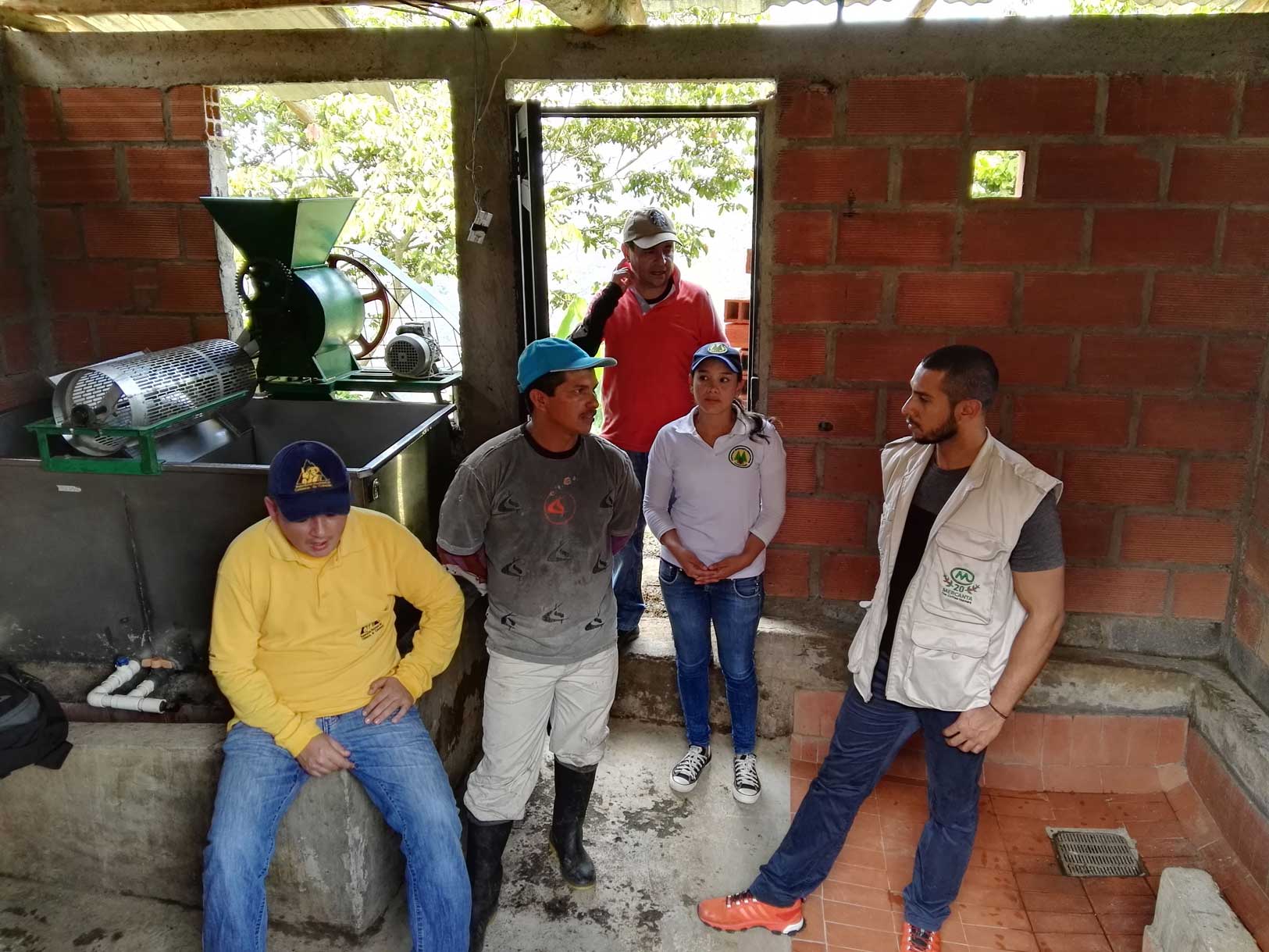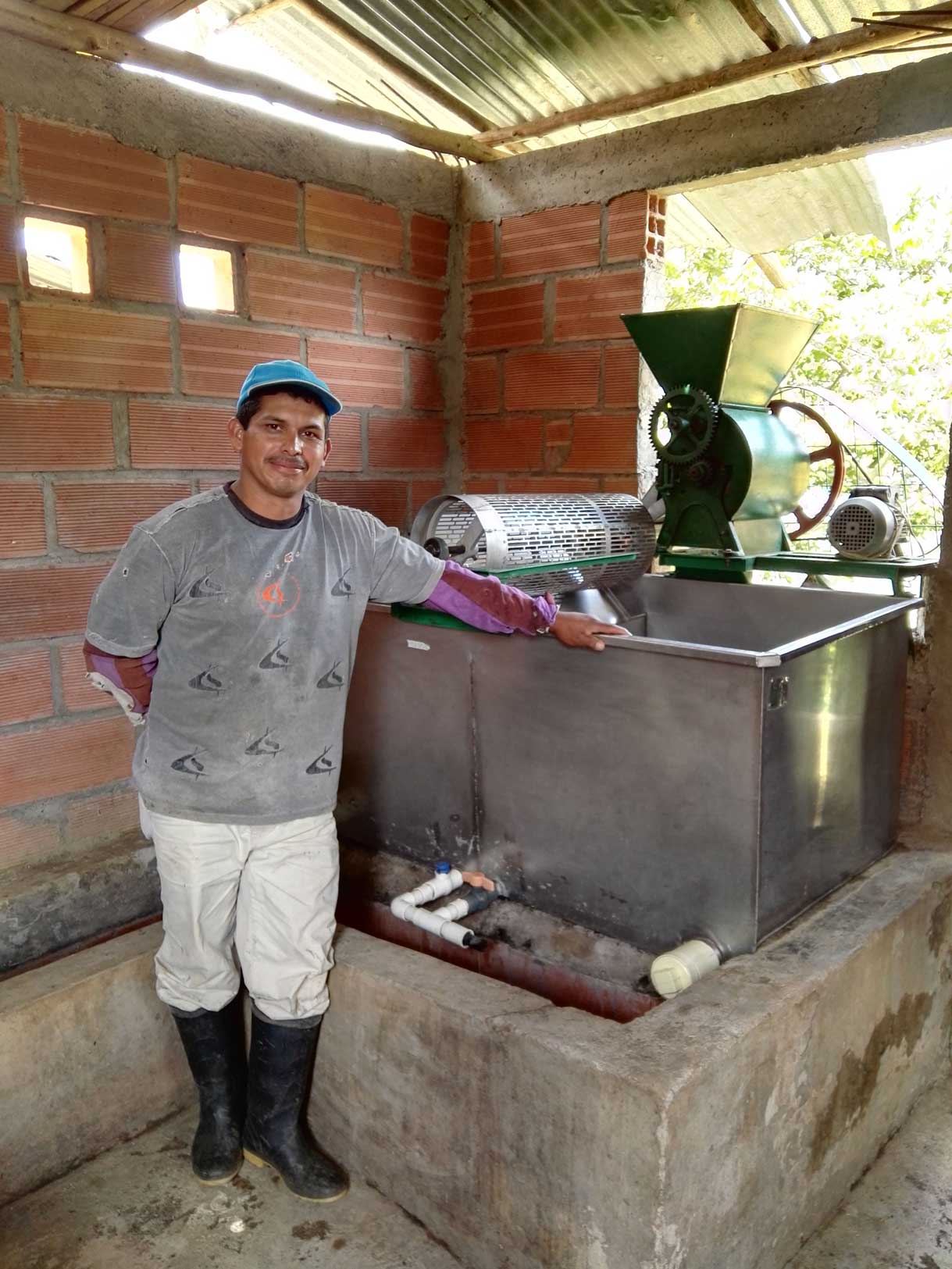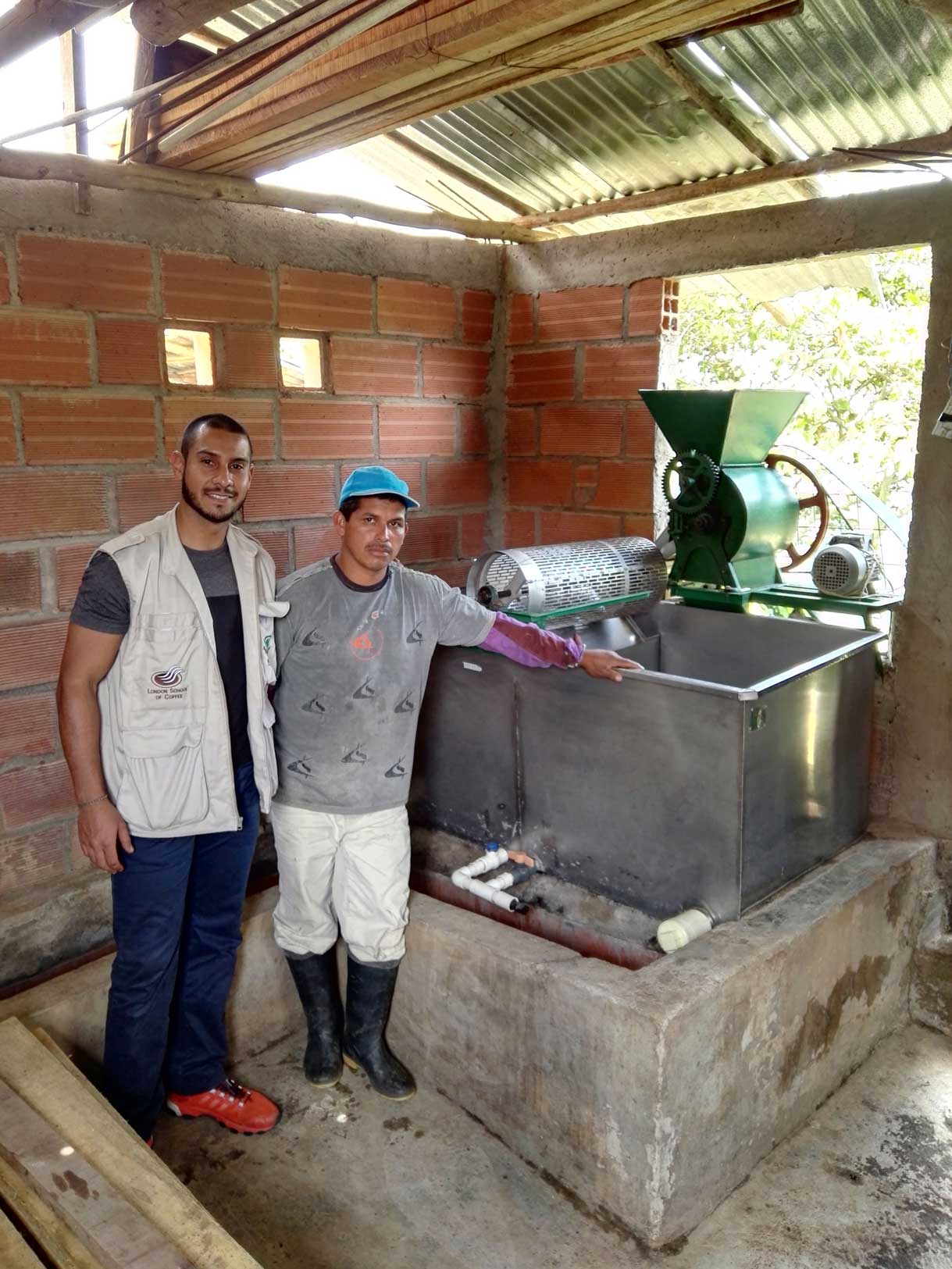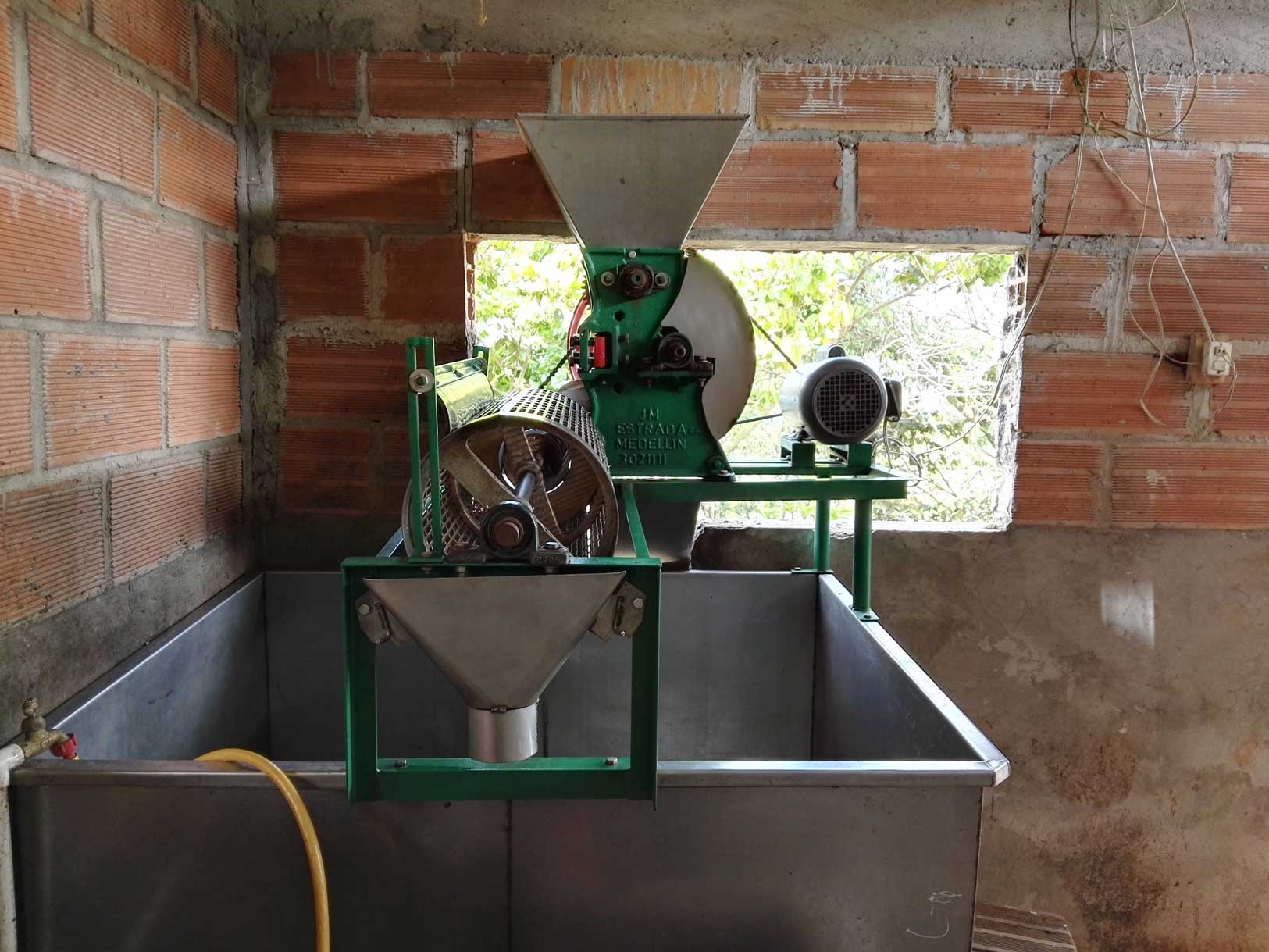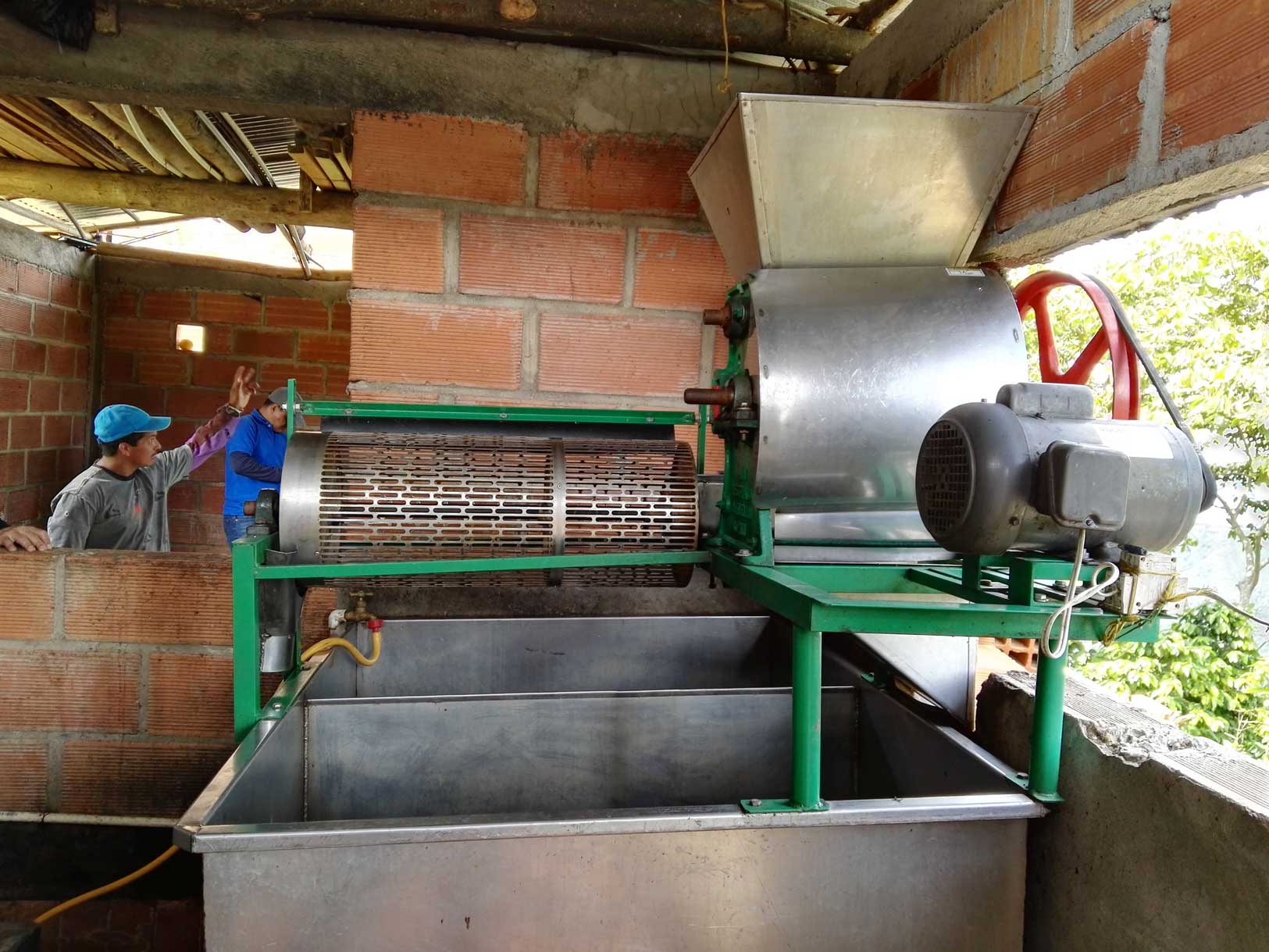From the Field: Introducing Antioquia’s Best Cup Winner, La Falda del Centro

by Juan Cano, Mercanta Medellin
I rise early every day, but there is always a special feeling when I am going to visit a coffee farm. Even though I have been to hundreds of coffee farms, I just love it out there, and I always look forward to a farm visit!
Today was particularly special, however. This farm was special. Located near the town of Giraldo in Colombia’s coffee producing state of Antioquia, La Falda del Centro is owned by Rubiel Higuita and is home to one of the amazing lots we purchased during the most recent Antioquia’s Best Cup contest. Finishing in the top 30 and earning a place at the Auction, the farm has established quite a name for itself. In fact, the farm won a place at auction in 2013 (the first year of the contest), as well!
Antioquia has over 130,000 hectares planted in coffee and produces more than 1.8 million 70kg bags per year – nearly 15% of Colombia’s total coffee production. 90,000 families here count on coffee as their main source of income, most of whom are small producers with 3-5 hectares per family. Most of these families have been growing coffee for 3 or 4 generations, but they still rely on other crops such as beans, corn, banana and all kinds of vegetables to make ends meet.
Typically, these families have struggled to gain access to specialty markets. The region’s violent past, with a heavy presence of FARC guerrillas, had historically prevented the FNC and specialty-focused exporters from establishing a presence in the region. However, for the last 3 years, Antioquia’s government has been making great strides to both improve the quality of the coffee produced in the region and to promote the consumption of specialty coffee in Colombia. Antioquia’s Best Cup contest is an example of one such activity.
Previous competitions have seen a significant increase in the number of coffees submitted as well as quality and auction prices. Rubiel is a prime example of a producer benefiting from the contest. He’s placed in the competition twice in the last three years, and he’s managed to create a name for himself and La Falda del Centro that he hopes will create a better future for him and his family.
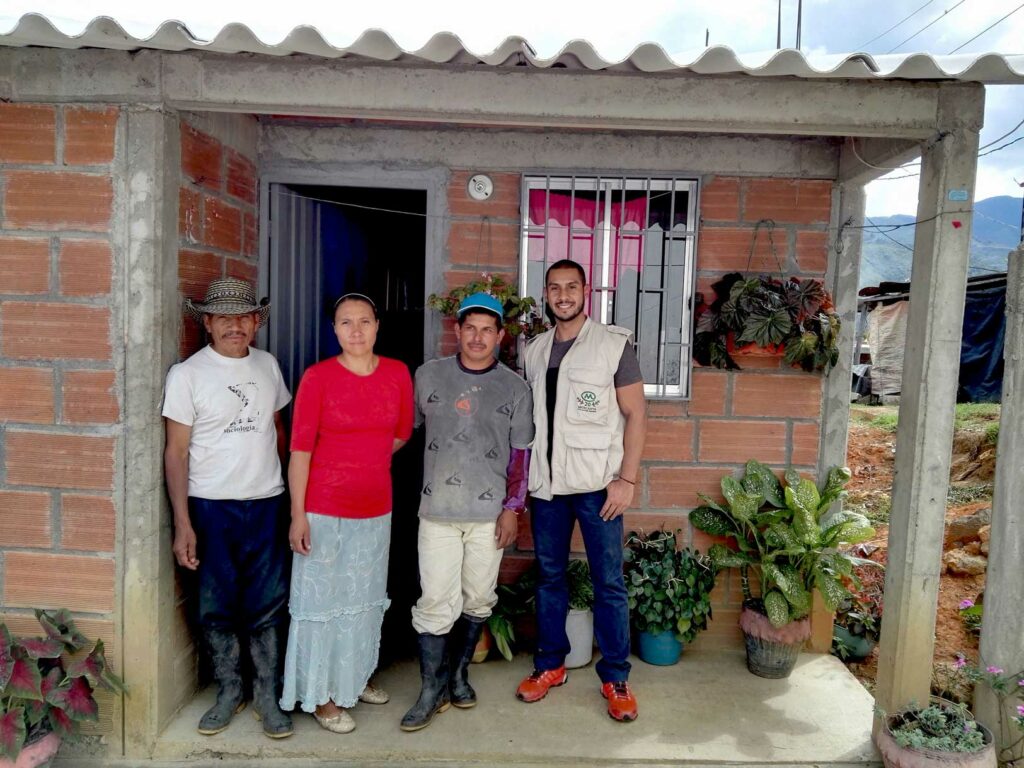
Juan Cano with Rubiel and his family
Giraldo is only a 3 hours drive from Medellin city and was quite different from what I had been expecting. With the smallest main square I had ever seen, the town is sleepy and small. However, as we drove to the township where the farm is located, I was able to see what is special about this place and the coffee produced here.
Giraldo is located to the west of Medellin, just past Antioquia’s former capital, Santa Fe de Antioquia (boiling at 34°C as we drove through it). Unlike the sweltering town below, the 900 farms that lie in the mountains surrounding the village benefit from high altitudes and cool temperatures. The average farm size in the area is 0.9 ha (approximately 6,000 trees), which enables the farmers to have more control over their farm management (pests, production, protocols, finances) while at the same time requiring them to focus on quality rather than on quantity to be able to make a profit. 65% of the coffee planted in the area is traditional, non-resistant varieties, such as Caturra.
La Falda del Centro, itself, occupies a privileged location on top of the mountain range, with a base altitude of 1,950 masl and average temperature of 17°C, making it an ideal location for growing very high quality coffee. Rubiel is rather quiet but welcoming and genuinely happy to have us there in his farm. Above all, he is eager to share with us his secrets to producing such tasty coffee. It might seem like magic, but really it is nothing more than “discipline, care, good practices and love for his plants” as he himself puts it.
He has owned this farm for 15 years, and 10 years ago, thanks to the support of the local cooperative, he joined forces with other 85 growers from Giraldo and its 2 neighbouring villages to form what is now known as Cafe Exotico de Altura (High Altitude Exotic Coffee) – a group of producers that focuses on very high quality coffee grown at high altitude, as the name suggests.
As we walked through the plantation while snacking on ripe mangos, he told me all members of the group must have farms located at above 1,700 masl to join the group. They also must live in one of the of the 3 villages La Sierra, La Sierrita or Cuajarón and be affiliated to the local cooperative. (Side note: Cuajarón is where Silvia Higuita is from, the grower that ranked 1st during the 2015 Antioquia’s Best Cup contest, and her coffee was auctioned out as a whopping $32,50 per lb.)
While Ruiel benefits from a good natural location for coffee farming, he is also a methodical farmer who knows his craft. Everything on the farm is orderly and scheduled (when to weed, fertilize, etc) and his recurrent phrase “El Café es un alimento” (Coffee is food), took on an even greater meaning as we walked into his wet mill: the pulper, fermentation tanks, washing channels and every surface were squeaky clean. I found out shortly afterwards that this was true for all the producers in this area!
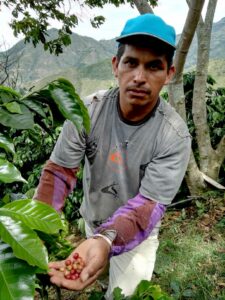
The Coop has done an amazing job in helping the producers of this town and others to focus on quality in their coffee production. They have heavily promoted, as well, the idea of approaching coffee production as a business, not just as a twice a year ‘cash injection’. The new approach is helping producers in the area to obtain a better quality of life, put their kids through school and university and save money for various investments and unexpected events.
I was surprised to know that all farmers in the group also have a cupping kit, complete with a sample roaster, 1 cupping spoon and a blade grinder in their homes. This is highly unusual – and absolutely key as a first step towards understanding quality in the cup. All farmers also have professional equipment, such as a first aid kit, fire extinguisher and even a full body protective suit for when they are going to fumigate their farms. Luckily, farmers in this area rarely have to fumigate as they don’t really have coffee leaf rust infestations and they control the coffee borer by stripping the trees of all beans a few times per year. Still, the level of professionalisation is impressive and unusual in this remote state.
Rubiel’s organization is also reflected on how he reinvests his profits: he already owns 4 farms, and because they are all small, he does most of the work himself, keeping his costs down and scheduling time between them all to be on top of things.
The Microlot that Mercanta succeeded in securing at the auction comes from La Falda del Centro, his largest farm. His other farms – Pieadentro, El Limon and La Aguada – are significantly smaller. They are not adjacent; however, they are all located close to his home, and La Falda del Centro is basically in his backyard.
Given the location of the Rubiel’s farms (altitude, temperature, luminosity etc), the crop comes normally a bit later than in the rest of Antioquia. His main crop is from November to early March (the rest of the region is September to late December) and it runs together with the fly crop which comes in April and May. Thus, Rubiel produces all of his coffee over the span of 7-8 continuous months and then, when things are not as busy, he spends time with his children and wife and also grows some vegetables and some fruits for him and his neighbours.
You can learn more about Rubiel here:
About the author: Juan Cano heads up Mercanta’s office in Medellin, Antioquia, Colombia.
